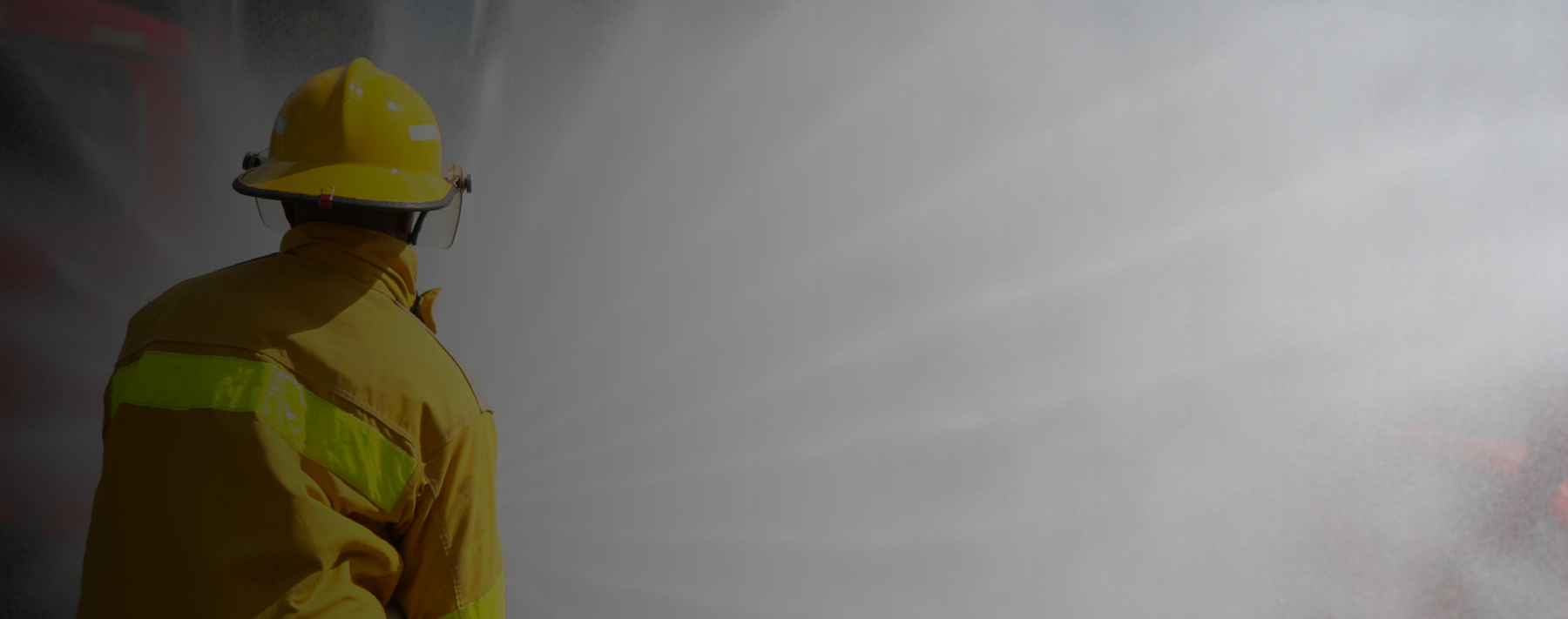Dear New Firefighter …
Welcome to the best job in the world! For many of us, getting appointed to the fire department is like winning the lottery. To others, joining the local volunteer fire company is an opportunity to give back to the community and be of service to others. In other words, whether you are a new firefighter in either branch of the fire service, you are now a member of another family.
You see, the fire service generally views itself as a very large and somewhat dysfunctional family, complete with rivalries and disagreements. As a new firefighter, you may be called probie, rookie, candidate or the very succinct “FNG.” Accordingly, the first thing you should learn is to pay attention, keep your ears open and your mouth shut. In other words, listen to what is being said before you jump in with a comment. Conversely, if you have a job-related question, don’t be afraid to ask. No one wants to see you get hurt or killed because of an unanswered question.
Now that we have the preliminaries out of the way, let’s talk more about the job.
Want to know more about Cordico, Lexipol’s wellness solution?
CLICK HERE!
Firefighter 101
First, the basics. Showing up a couple of minutes before the start of shift is no way to start a day — or a career. Learn to show up at least half an hour before shift change. Most of us will tell you to show up an hour early so you can start a fresh pot of coffee, jug of sweet tea, or whatever is the preferred “juice” in your firehouse. Oh, you don’t drink coffee? Too bad … get over it. No one cares whether you drink the coffee you brew; it’s a firehouse ritual performed by the junior member of the company.
It is important to understand that your firehouse is now your second home, so treat it accordingly. Yes, we clean the toilets, showers, kitchen, bunk room(s), apparatus bay and, of course, the rig. Speaking of the rig, (machine, truck, pumper, whatever the local slang might be), learn every inch of it, inside and out. Learn what tools and equipment are stored in each compartment and how to use those items. That knowledge could one day save your life, or the life of one of your brothers and sisters.
Every firehouse and fire department has its culture, customs and rituals. Learn them as you would your agency’s rules, regulations and operating procedures. One of the best ways to do this is to seek out the senior members on duty and ask them all the questions you need answered on your first day. What is my housework assignment? Which bunk should I use? Where are the cleaning supplies? This is not stuff to ask the company officer. The officer has more important things to do than giving you a guided tour of the locker room.
Staying Alive
Firefighting is a dangerous job. And it’s dangerous in all kinds of ways. Some are easy to identify, such as getting burned while fighting a fire. Others are less obvious. For example, many firefighters are injured or killed in apparatus crashes while responding to incidents. In addition, there are more insidious causes of job-related illness or death. Half of all line-of-duty deaths (LODDs) are directly related to cardiopulmonary events which can often be traced back to lifestyle choices.
Beyond this threat is the terror of job-related cancer. You don’t get cancer in a single day, but through repeated exposure. Firefighters are susceptible to several kinds of cancer, many of them rare.
Fires create a toxin stew and repeated exposures that stew may lead to a cancer diagnosis long after the exposures occur. The common thread here is that cancer generally cannot be traced back to a single event. You must take the steps necessary to document these events to protect your family and yourself. The simplest way is to keep a record of all the times you’ve come into contact with known carcinogens. How? Keep a journal where you record every call that you respond to. It can be analog, using a notebook, or digital, using one of the available apps. My suggestion is to do both and start the first day. Most calls will require a simple entry. Others will need more details beyond the date and time of the call. You will need to document what tasks you performed, and the entry should be made as soon as possible after each incident.
A final risk you need to be aware of is PTSD. Like job-related cancers, PTSD is generally the result of repeated exposures. There is no doubt your eyes will see things that cannot be unseen. It’s a well-known fact that more firefighters die from suicide than from on-the-job injuries and accidents. Be willing to seek help if you are experiencing the symptoms of psychic trauma.
If you have a job-related question, don’t be afraid to ask. No one wants to see you get hurt or killed because of an unanswered question.
Keep Learning
“Never Forget: this is so much more than a saying — never forget our history, our retired members, our fallen.”
— Deputy Chief Frank Leeb, New York City Fire Department
One of the first things you need to develop as a new firefighter is respect for the job and yourself. This is accomplished by becoming a life-long learner. Try to learn something new that is fire-related each day. Build your personal fire service library. The easiest way to start your library is by downloading and reading the LODD reports published by the National Institute of Standards and Technology (NIST). By doing so, you honor and remember the fallen who have given you knowledge that was paid for in blood.
Also, listen to and learn from the fire stories told by other firefighters and retired members. Their experiences have great value, containing information that is transferable to your own growing experiences. It’s been said that “those who cannot remember the past are condemned to repeat it,” and there’s no setting where this is more true than in your new occupation. Sadly, the fire service doesn’t have the best track record of learning from the past. Many of the same fatal mistakes that occurred years ago continue to happen today. Be one of the firefighters helping to change this reality.
Practicing Self-Care
Above all, remember that the job is part of you, and not who you are. Do not let the job consume you. Strive to keep a balance between your work and the rest of your life. This can be difficult because of the family nature of the job. You will spend many hours with your firehouse family and miss birthdays, weekends and holidays with your immediate family.
Take care of yourself. It is worth repeating that firefighting is physically and emotionally demanding. Only you can address these demands. There are risk factors for both, some of which are modifiable, and others not. For example, you can stop smoking, cut back on alcohol consumption and eat healthier. A constant diet of pizza and beer followed by a cigar chaser isn’t going to make you any healthier in the long run.
If, for some reason, your department is not doing periodic medical evaluations (beyond the OSHA SCBA clearance evaluations) then it is up to you to go to your family physician to have an annual physical. Untreated hypertension, hyperlipidemia and hyperglycemia have all been found in LODD autopsies. Taking initiative here can help prevent you from becoming a statistic.
As for maintaining your behavioral health, continuing (or finding) a hobby, learning meditation or yoga, and going for a run or walk are all positive ways to maintain or improve your mental and physical health. If nothing else, these activities provide a welcome distraction, giving your brain time to process the stressors that come with being a firefighter.
Finding Meaning
Simply wearing a uniform and protective clothing does not make you a firefighter. Firefighting is more than just a job — it’s a calling. It is an opportunity to give back to your community and make a difference in the world. It’s sad to grow old and wonder, “Did I make a difference?” If you respect the job and its history, honor your fellow firefighters, retirees, and the fallen, learn the job, and live the job when you are in the firehouse, you won’t have to think long to understand that you made a difference.
My final advice to you is to not get a reputation for being a “hair bag.” Trust me, this is not a compliment. It means that the firefighters around you consider you to be, at best, a slacker and at worst, someone who cannot be counted on to pull your weight.
There are numerous articles and lists outlining the unwritten things you need to know. You should seek them out as you would senior members of the job. There are pages filled with sage advice that can contribute to your success. This letter is too short to include them all, but it shouldn’t prevent you from reading and taking them to heart.
Some firefighters may define a successful career as reaching the upper ranks of the fire department. But the real measures are getting home safely after your shift and enjoying a long, healthy retirement when you have decided it’s time to finally hang up your helmet.
With respect and brotherhood,
Mike Vatter



